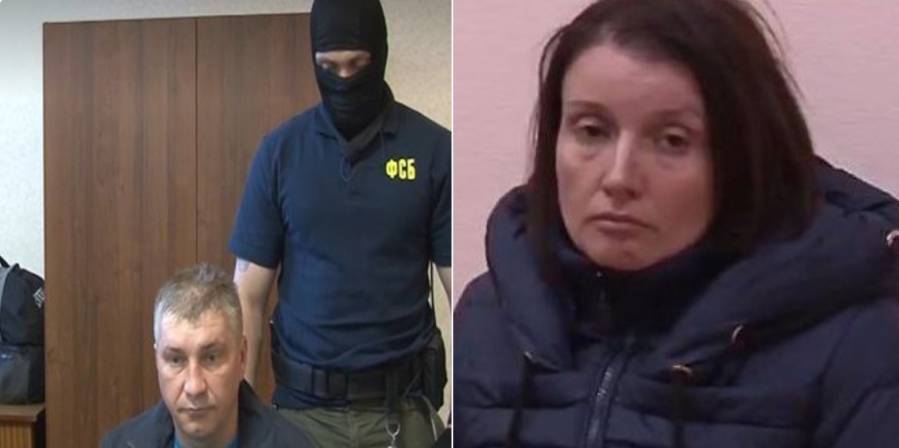Russia arrests Crimean soldier who betrayed oath to Ukraine on charges of ’spying’ for Ukrainian intelligence

Plausibility has never been taken into consideration in Russia’s arrests and ‘trials’ in occupied Crimea, but the latest two arrests are still a new precedent. The FSB is, in all seriousness, claiming that a former Ukrainian soldier who ostentatiously betrayed his oath of allegiance to Ukraine was spying for the latter.
According to the September 29 FSB report which was widely, and uncritically, reported by the Russian state-controlled media, Dmitry Dolgopolov and Anna Sukhonosova, a fitness instructor, are alleged to have “collected and handed to the Ukrainian security service information constituting a state secret about the activities of units and formations of the Black Sea Front”. Criminal proceedings have been initiated under ‘state treason’, with this potentially carrying a sentence of up to twenty years.
39-year-old Dolgopolov was a military serviceman in the Ukrainian Army in February 2014 when Russian soldiers without insignia invaded Crimea. On February 28, his military unit was blocked by Russian soldiers and members of the so-called ‘Crimean self-defence’. Eventually some left Crimea and continued serving in the Ukrainian Army. Others changed sides, including Dolgopolov.
The Russian BBC spoke with Dmytro Nefedchenko, who knows both of the two people arrested. He says that Dolgopolov had embraced the ‘Russian world’ ideas which Russia used in 2014 to justify its military aggression against Ukraine, but that Sukhonosova held pro-Ukrainian views. In his rendition, Dolgopolov is “a good guy, a real patriot of Ukraine”, while his common-law partner “is a Ukrainian nationalist, although a Crimean”.
Ukraine’s Security Service [SBU] reports that it has also initiated criminal proceedings against Dologopolov on charges of state treason, though a military spokesperson said that the charges are of desertion.
Vladyslav Seleznev from the Ukrainian military headquarters, is openly dubious about the claim that the two had been ‘spying’ for Ukraine. Nothing about Dologopolov suggests that he could be working with Ukrainian Military Intelligence out of pro-Ukrainian and patriotic views.
The same opinion is expressed by Oleksiy Mazepa, who formerly served with Dologopolov, and who is now serving in Ukraine’s Army. He notes that there was an intensive propaganda campaign, in which the soldiers were promised vastly greater salaries, etc..
There have been at least ten arrests on charges of either planning ‘sabotage’ or ‘spying’ for Ukraine since August 2016, with the only ‘evidence’ in each person’s case being videos of their supposed ‘confessions’.
In August 2016, four Ukrainians were seized and soon confessed to being part of a Ukrainian military plot to ‘encroach’ upon Ukrainian Crimea, which Russia is illegally occupying. Volodymyr Prysich and Redvan Suleymanov were later convicted of suspected offences which bore no relation to proper lawyers.
Heavy pressure brought to bear against both Andriy Zakhtei and Yevhen Panov has resulted in Zakhtei now agreeing to give up his independent lawyer and admit guilt, in exchange for a smaller sentence. This must inevitably be viewed against his detailed testimony earlier of the circumstances of his arrest and the torture used to extract his confession. His earlier testimony corresponds to that given by Panov, who denies all the charges.
One of the six men arrested in November has also since been convicted of something radically different from his confessions, and there seem clear grounds for believing that the ‘confessions’ are being forced out of people through torture or ill-treatment.





